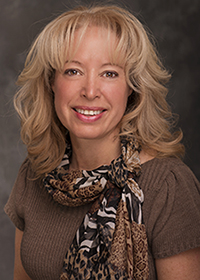A devotional on 2 Samuel 4
It is a bloody sight. Two brothers rush victorious to King David, lugging a severed head. They stand before King David with their repulsive remittance, hearts beating excitedly. David looks at them curiously. He has stood where they now stand — in front of a king holding a head — after he killed Goliath. Murder and victory sometimes come together in one dissevering act.
But is this murder or is it victory?
We face this question a lot. Every time we speak about another person, whether in our thoughts or in conversation with others, or when we make choices about how to treat our bodies or the bodies of others, we face it: Is this murder or is it victory? Is it right to do what I am doing at this moment? Is it right to say what I am saying?
As it happens, David is not amused. Nor was he amused the last time a messenger brought “good news” to him about the death of “an enemy.” David killed that messenger because that messenger killed King Saul, who was God’s anointed. Not good. David spoke clearly to that messenger: While it may be easier that Saul is dead, it should not have been your hand that killed him!
With this in mind, David now looks at the two brothers in front of him — messengers who bring “good news.” They have killed Ish-Bosheth (Saul’s son). They stand before David with his head in their hands, blood trickling from their gruesome gift, expecting congratulations.
Finally, David speaks.
“When someone told me, ‘Saul is dead’ and thought he was bringing good news, I seized him and put him to death. … That was the reward I gave him for his news! How much more — when wicked men have killed an innocent man in his own house and on his own bed — shall I not now demand his blood from your hand and rid the earth of you.”
In others words:
You are wicked men.
You went into a man’s house where he was defenseless.
The man you killed was innocent.
Put into one sentence: You had no right to destroy this life!
Sometimes we are proud to get the best of our “enemies.” We stand unafraid with their heads in our hands. Through gossip, insinuation or even the sharing of true facts that hurt others’ reputations or decrease their effectiveness, we move with misplaced courage. We often do the same with the bodies of others, pushing them to take action (or accept it) when it is not in their best interest. We must consider:
Do I act out of “wicked” intent?
Do I act against the defenseless?
Do I act against the innocent?
Will God say to me what David said to the two messengers?
You had no right to destroy this life!
—Carla Gober-Park, PhD, is assistant vice president for Spiritual Life and Mission at Loma Linda University Health, as well as director of the Center for Spiritual Life and Wholeness.


